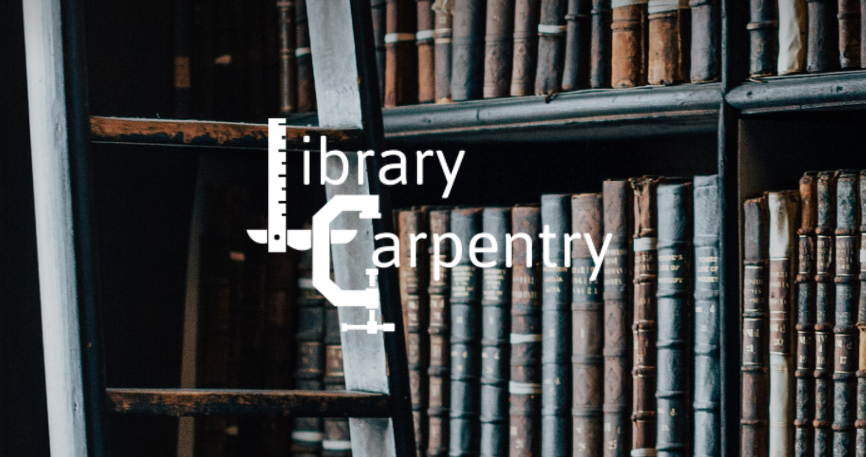Dec
27

Posted by karencoghlan on December 27th, 2018
Posted in: Blog
Tags: Data, data_science, eScience, science librarians

This is the sixth blog post in a series authored by 7 individuals who received scholarships from the New England Region of the National Network of Libraries of Medicine (NNLM NER) to attend the Library Carpentry Training held at Brown University on October 22-23, 2018. In this installment, a scholarship recipient, Sawyer Newman describes the Library Carpentry Training. If you are interested in learning more please join us for a live webinar hosted on February 7, 2019 at 2:00 PM EST about Library Carpentry.
~~~~~~~~~~~~~~~~~~~~~~~~~~~~~~~~~~~~~~~~~~~~~~~~
Sawyer Newman
Data Librarian for the Health Sciences
Harvey Cushing/John Hay Whitney Medical Library/Yale
Recently, I had the privilege of attending a NEASIST hosted Library Carpentry Workshop at Brown University, where a room of information professionals learned skills in shell functions, git, and Open Refine. These skills are useful both in automating tasks librarians have, as well as skills librarians are well suited to teaching patrons in a cross-disciplinary environment.
As intimidating as the selection of topics might sound, the format of the workshop was such that the group of around 30 was kept up to speed throughout the hands-on demonstrations by the instructors and a team of helpers, who would go around the room addressing individual questions. Individual or workshop-wide, support could range anywhere from installation help, to questions about operating system compatibility, to understanding concepts behind programming, to new proposed uses for any of the given tools.
The instructors, which include two of my colleges at Yale, Joshua Dull and Kate Nyhan, and Kristin Lee from Tisch Library at Tufts, rotated between teaching and support rolls throughout the sessions. While teaching, they worked together through hands-on demonstrations through live coding and live troubleshooting, which is not an easy task. In doing this though, they lead with the mentality that programming skills are approachable, and that you should feel comfortable answering questions you might have through trial and error.
As someone who attended this workshop in order to learn, as well as to become a Carpentries instructor, I thought this was such a constructive learning environment and one I would like to model in my own instruction sessions to our library users.
~~~~~~~~~~~~~~~~~~~~~~~~~~~~~~~~~~~~~~~~~~~~~~~~
For more about Library Carpentry or other upcoming events like the live webinar about Library Carpentry, please visit the NNLM NER website, or contact anyone in the NNLM NER office.